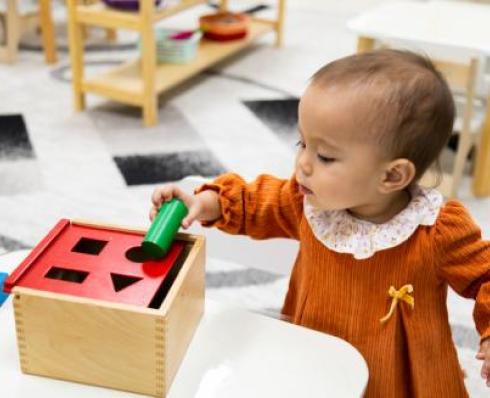PL02: Universal Design for Learning In Early Childhood Education (0-8yrs)
| Dates |
Saturday 18th October ‘25
Saturday 1st November ‘25 |
| Time |
10:30am - 2:00pm |
| Number of sessions/duration |
2 x 3.5 hours |
| Maximum No of participants |
30 |
| Course Leader |
Mary Quirke and Carol-Ann O’Síoráin |
| Format |
On Campus |
Course Outline
Day 1
Session 1: Foundations of UDL in ECE, 11am - 11.45am
An introduction to Universal Design for Learning (UDL) will be presented for discussion. Attendees will be offered opportunities to connect with the principles and checkpoints of UDL making connections to practice and local policies. In small groups they will explore a child’s daily experience using a UDL lens.
Session 2: Inclusive Play, 12noon - 12.45pm
In this workshop an introduction to inclusive play will offer opportunities to attendees to reflect on current play practices, experiences and learning needs, using UDL to reframe play and play environments. Attendees will explore diverse experiences of sensory, communication and mobility needs. A case study analysis will be used to support discussion on UDL informed adjustments
Session 3: Storytelling for Inclusion, 1pm to 1.45pm
In this workshop attendees will be introduced to storytelling as a teaching tool for culturally responsive and child led narrative practices. Attendees will engage with the story in a hands-on practical manner demonstrating the importance of digital, tactile and performative stories to reach and engage all children. Using the UDL principles attendees will co-create a short inclusive story.
Day 2
Session 1: Reflection from Session 1; What we have changed and what we need to change, 11am -11.20am
In this session we will address questions, reflections and experiences from practice based on implements or reflecting on Session 1 learning. Attendees will discuss ideas in small groups and feed back to the full group.
Session 2: Access to Inclusion Model and UDL, 11.30 am -12.30pm
In this session attendees will explore the ‘Diversity, Equality and Inclusion Charter and Guidelines for Early Childhood Care & Education’, (DCEDYI, 2016) and reflect on their own settings inclusion charter. They will attend to concepts of working in a multi-disciplinary team and reflect on their roles and responsibilities using a UDL framework.
Session 3: Partnership with Parents and the UDL Framework, 12.45pm - 1.30pm
In this session attendees will explore supporting parents in applying UDL in the home setting, they will build knowledge in communicating with parents on new ideas and concepts to support the child’s development across an intergenerational family system. Attendees will develop ideas for establishing a communication infographic on UDL principles for families.
Profile of Course Leader
Dr Mark Quirke is a leader in Universal Design education practices across all education sectors. She brings a wealth of experience from her guidance experience to support learners with additional needs to transition across learning environments. She is a published author and active researcher in the field of inclusive education.
Dr Carol-Ann O’Síoráin is an Assistant Professor in Early Childhood Education in the School of Language, Literacy and Early Childhood. She is an active educator, researcher and advocate of inclusive education and quality learning experiences for children with additional needs in early childhood. Her research interests inform her everyday practice as a teacher educator.




